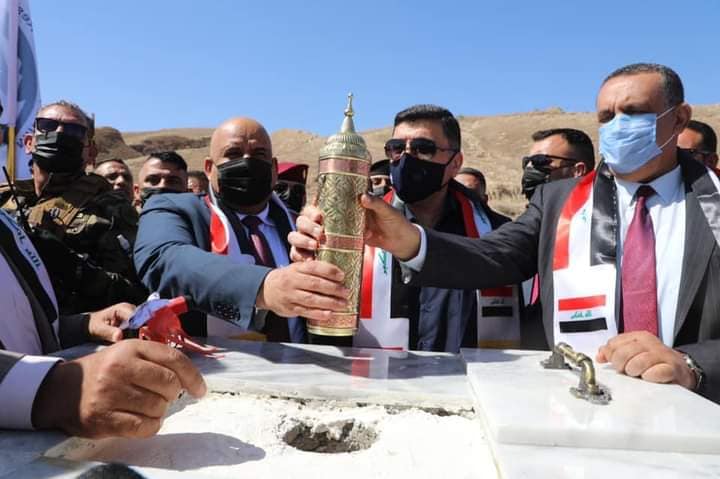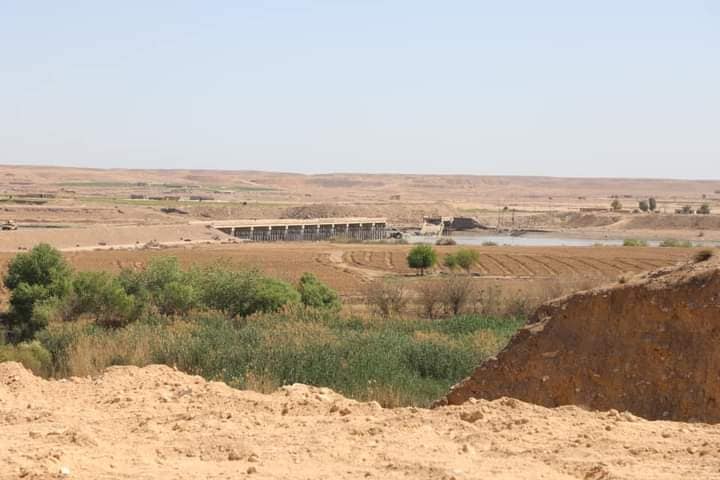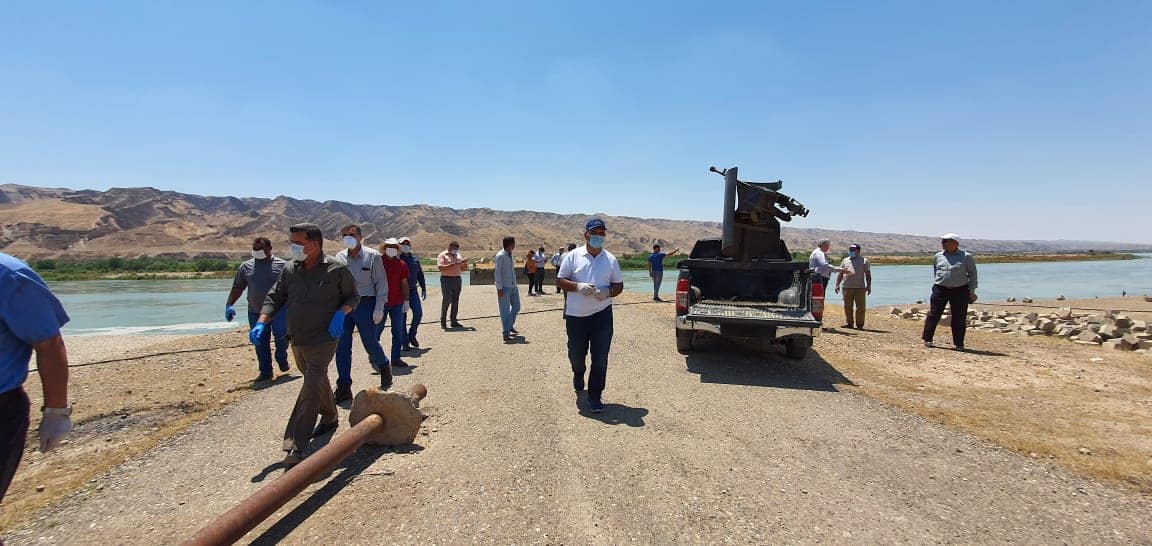Iraqi minister of water recourses along with governors of Kirkuk and Salahaddin on April 12th has laid the foundation stone of Makhool dam, the largest strategic project in Iraq since 2003 that will reserve three billion cube meters of water.
Mahdi al-Hamdani, water minister, said the project is one the strategic projects by the ministry that will boost water reserve and flourish Iraqi economy. The project will generate 20,000 job opportunities, he added.
The project is within the sub-districts of Zab and Abbasi, west of Kirkuk Northern Province and Ziwiya sub-district of Beji district north of Salahaddin heading to the left of Shirqat district.
The dam will be an artificial lake
The project will generate 20,000 job opportunities, he added
Companies under the ministry are tasked to implement the project and foreign expertise can be consulted and involved once required, he added.
Regarding compensations for damaged families, the minister said expert technical committees of the ministry study the compensations and "no one will leave unless proper housing and real convincing not virtual solutions will be found."

April 12th- Iraqi minister of water recourses along with governors of Kirkuk and Salahaddin laid the foundation stone of Makhool damز
Governors of Kirkuk and Slahaddin support the project and proper compensation for the residents to leave their hometowns for new compounds.
Ammar Jabir, governor of Salhaddin, said the project has agricultural and economic advantages.
"Families to leave will be sent to a new proper place and will receive a worthy compensation," he added.
"Families to leave will be sent to a new proper place and will receive a worthy compensation," he added.
Acting governor of Kirkuk Rakan al-Jibouri said in a statement the formation of committees to compensate those damaged to be accelerated for "satisfying and convincing compensation" to be assessed by council of ministers.
He also emphasized that priority should be for people of Kirkuk in terms of job opportunities the project provides as Kirkuk is one of the big cities that will receive major damage from "one of the biggest and vital projects considered an achievement for the Iraqi government."
Acting governor of Kirkuk calls for compensation of local residents
Local residents are willing to leave in case properly compensated.
Om Sajad, 26, is a resident of al-Hawaij village of Abasi sub-district, supposed to leave their village forever as it is part of the Makhool Dam project. "I do not object leaving if there will be house and public services and compensation for our losses."
The residents of 14 villages of Abasi breed cattles and sell dairy products to make their living, said Hussein Alawi, mayor of Abasi.
"It is not easy to demolish all these villages before providing proper alternatives we have not seen yet on the ground," he added.

April 2021- Part of the dam location with Salahaddin Province.
Alawi said that estimated compensations are not compatible with losses because "it provides only houses not compensations for all the losses for their agricultural and animal sources."
Ahead of 2003, Iraqi former regime has compensated few families for 5-10%, he added.
"Up today, no housing units has been built for the families to leave and no any infrastructure projects for the new residential areas," Alawi added.
"Up today, no housing units has been built for the families to leave and no any infrastructure projects for the new residential areas," Alawi added.
Mayor of Abbasi is not optimist that compensations will be equivalent to the losses and on time due to absence of accurate planning ahead of launching the project. He believes this will also lead to shortage of local products.





